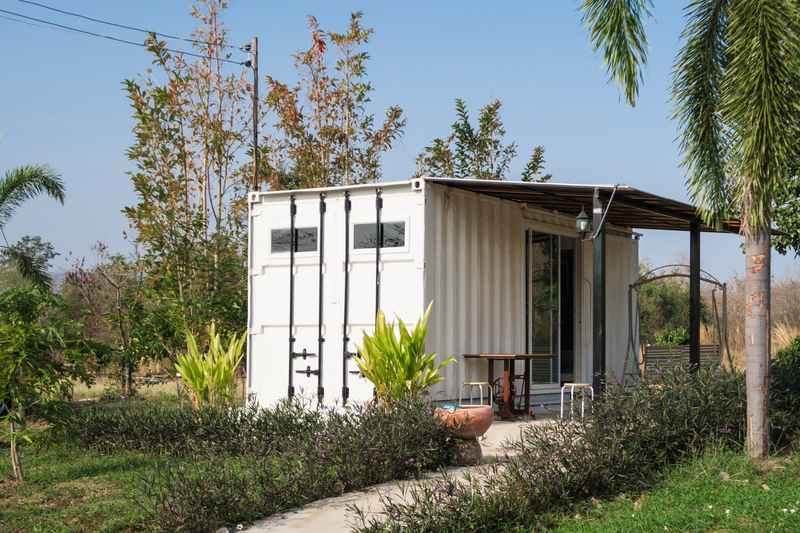Innovative Recycling Ideas to Energize School Communities
Recycling is more than just a commitment to the environment--it's a creative, community-building catalyst, especially within schools. By embracing innovative recycling ideas, school communities can instill sustainable habits, empower students, and foster a culture of environmental stewardship. This comprehensive guide explores varied, imaginative, and impactful recycling solutions that not only optimize sustainability but also energize and unite every member of the educational ecosystem.
Why Prioritize Recycling in Schools?
Adopting recycling programs in schools goes beyond sorting waste. It cultivates environmental awareness, encourages teamwork, and sets lifelong eco-friendly attitudes. In addition, recycling conserves resources, reduces school waste disposal costs, and inspires creativity through hands-on learning experiences. Effective recycling initiatives prove that schools aren't just centers for academic growth--they are hubs for environmental innovation.
- Educational Impact: Students actively learn about environmental challenges and become responsible citizens.
- Financial Benefits: Schools can save money by reducing landfill fees and sometimes earn funds from recyclables.
- Community Building: Recycling campaigns can involve local businesses and families, fostering unity.
- Leadership Development: Organizing recycling initiatives helps students build essential leadership and teamwork skills.

Top Innovative Recycling Ideas for School Communities
1. Themed Recycling Competitions
Stir excitement with recycling-themed contests. Whether it's a month-long challenge between grades or a one-day blitz, competitions encourage participation and reinforce the value of recycling in a fun, motivating way. Consider creating a recycling leaderboard and awarding prizes like eco-friendly school supplies or class parties. This approach transforms recycling from a chore into an eagerly anticipated event.
- Paper Collection Races: Classes race to collect the most paper or cardboard for recycling.
- Plastic Bottle Challenges: Encourage students to bring in plastic bottles for upcycling projects or collection drives.
- Creative Art Contests: Organize art competitions using only recycled materials to make sculptures or collages.
2. Upcycling Workshops and Maker Spaces
Go beyond recycling to upcycling: transforming waste into something new and valuable. Schools can set up workshops or dedicated maker spaces where students reimagine discarded items as art, school supplies, or practical objects.
- DIY Stationery: Use old paper to create notebooks, envelopes, or handmade gift cards.
- Upcycled Furniture: Transform wooden pallets or old desks into planters or reading nooks.
- Eco-Friendly Decorations: Celebrate holidays or events with decorations made from bottle caps, jars, or scrap textiles.
Upcycling not only reinforces the concept of resourcefulness but also sparks innovation and teamwork.
3. Student-Led Eco Committees
Empower students by forming a student-led environmental club or recycling committee. Charge them with brainstorming, organizing, and promoting recycling initiatives throughout the school year. These groups can:
- Conduct waste audits to identify improvement areas.
- Launch awareness campaigns using posters, social media, or school announcements.
- Coordinate with local recycling centers for tours or guest speakers.
Such involvement not only boosts participation but also provides leadership experience and a sense of ownership for students.
4. Digital Recycling Initiatives
With growing digital footprints, e-waste is a pressing issue. Schools can set up e-waste drives to collect old electronics such as computers, tablets, and mobile phones for proper recycling or refurbishment. Partner with certified e-waste recyclers to ensure safe and environmentally sound disposal.
- Electronic Take-Back Events: Host an annual or semester-based event where families can drop off old gadgets.
- Repair Cafes: Teach students how to repair minor electronic issues, promoting reusability.
- Upcycle Old Tech: Repurpose parts for STEM projects or creative art installations.
5. Reusable Materials Campaigns
Transition from single-use to reusable items within the school. Encourage students, staff, and families to switch to refillable water bottles, washable lunch containers, or cloth snack bags. Launch a school-branded reusable product line featuring designs from student artists to boost adoption.
- Create a "bring your own container" day in the cafeteria.
- Hand out awards to students regularly using reusables.
- Involve the Parent-Teacher Association in fundraising and promoting sustainable products.
6. Green Cafeteria Initiatives
Cafeterias are notorious for generating waste. Implement comprehensive waste-sorting stations so students can separate compostables, recyclables, and landfill items. Incorporate signage with easy-to-understand instructions and visual cues. Consider composting food scraps with an onsite composter and use the results in school gardens.
- Host lunchtime recycling relays where student "recycling monitors" provide real-time guidance.
- Collaborate with local farms or gardens for organic waste pickup.
- Start a school garden program where students track the journey "from tray to soil."
7. Creative Collection Drives
Broaden the recycling repertoire with special drives targeting harder-to-recycle items such as:
- Batteries and Light Bulbs: Set up drop-off locations for safe collection and recycling.
- Textiles and Uniforms: Organize textile drives for old uniforms, shoes, or costumes.
- Writing Instruments: Collect empty pens, markers, and mechanical pencils for specialized recycling programs.
These specialized collections not only divert unique waste streams from landfills but raise awareness about less obvious but impactful recycling opportunities.
8. Recycling Education Campaigns & Assemblies
Educate the community with engaging and memorable learning sessions. Organize assemblies or workshops featuring interactive activities, expert speakers, or multimedia presentations. Incorporate lessons about the importance of recycling, the lifecycle of recyclable materials, and the global impact of waste reduction.
- Invite local recycling professionals for Q&A sessions.
- Host annual "Green Week" events that span education, action, and celebration.
- Integrate recycling themes into science and social studies curricula.
9. Community Partnerships and Outreach
Unlock greater recycling potential by partnering with local businesses, government agencies, and environmental organizations. Schools can participate in citywide recycling events, leverage local expertise, and amplify their impact.
- Coordinate with municipal recycling programs for larger drives.
- Involve local artisans for upcycling workshops.
- Seek sponsorships for bins, tools, or prizes that support recycling activities.
*Community collaboration not only motivates students but also strengthens bonds between the school and its broader environment.*
10. Incentive and Recognition Programs
Consistently acknowledge and reward recycling heroes, whether individuals, classrooms, or whole grades. Recognition can take many forms:
- Certificates, badges, or eco-leader pins
- Feature stories in the school newsletter
- Public shout-outs during assemblies
Celebrating achievements boosts morale and encourages long-term participation in innovative recycling projects.

How to Launch Your School's Innovative Recycling Program
Step 1: Build a Dedicated Green Team
Assemble a diverse group of students, faculty, parents, and community partners. This Green Team will spearhead the design, implementation, and management of recycling initiatives throughout the school year.
- Hold regular brainstorming meetings.
- Assign roles such as coordinators, communicators, and data recorders.
- Encourage creativity and shared responsibility.
Step 2: Conduct a Waste Audit
Understand your starting point by assessing current waste streams. A waste audit involves tracking what's thrown away, where and when it accumulates, and how much could be feasibly recycled or composted.
- Sort and count classroom, cafeteria, and office waste for a typical week.
- Identify gaps and opportunities for immediate improvement.
- Set realistic, measurable waste reduction targets.
Step 3: Set Clear Goals & Track Progress
Use waste audit results to create clear, achievable recycling objectives. Goals might include:
- Reducing landfill waste by 30% over the semester
- Collecting 100 pounds of batteries or electronics
- Increasing compostable waste recovery from the cafeteria by 50%
Regularly monitor and report progress to maintain momentum and adapt strategies as needed.
Step 4: Communicate and Educate
Effective communication is essential. Use posters, newsletters, announcements, and digital platforms to keep recycling at the forefront of school life. Make information about innovative recycling ideas easy to access and understand.
- Share inspiring success stories and updates.
- Explain recycling procedures clearly with signs and illustrations.
- Engage all stakeholders with regular reminders and tips.
Step 5: Celebrate and Scale Up
Recognize milestones with celebrations, feature success in the school media, and invite local press to highlight exceptional achievements. Expand successful innovations to more classrooms, clubs, or even district-wide initiatives.
- Host an "Eco-Fair" displaying upcycled projects and sharing results.
- Offer professional development for teachers to embed recycling into their curricula.
- Share best practices with other schools to multiply your school's positive impact.
Innovative Recycling: Beyond the Bin
The most effective school recycling programs look at the bigger picture: rethinking consumption, reducing waste, and reusing creatively. Encourage students and communities to view every discarded item as a potential resource, not just trash. When these innovative recycling practices take root, they ignite enthusiasm, teach invaluable skills, and create empowered, environmentally conscious future leaders.
Conclusion
By integrating innovative recycling ideas in school communities, educators, students, and families can foster vibrant, eco-friendly environments that benefit both the planet and people. From upcycling workshops to digital e-waste drives, from themed competitions to ongoing recognition programs, recycling becomes an integral, energizing force in school culture. Start small, dream big, and let your community's creativity power a more sustainable tomorrow.
What innovative recycling initiative will your school community launch next?